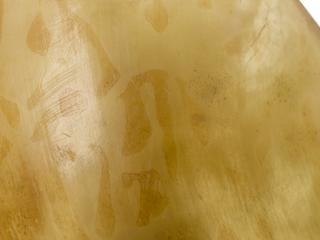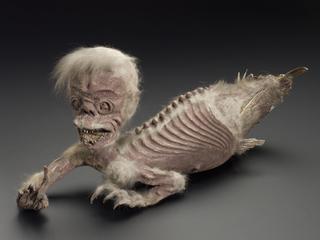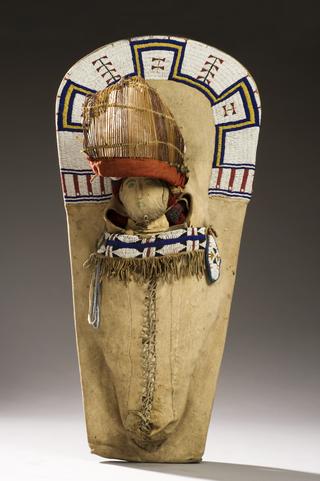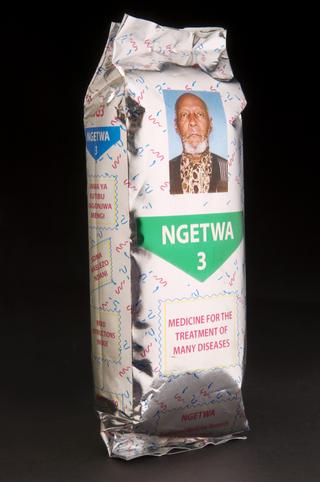
7 wooden sticks used in smallpox juju
- maker:
- Yoruba people
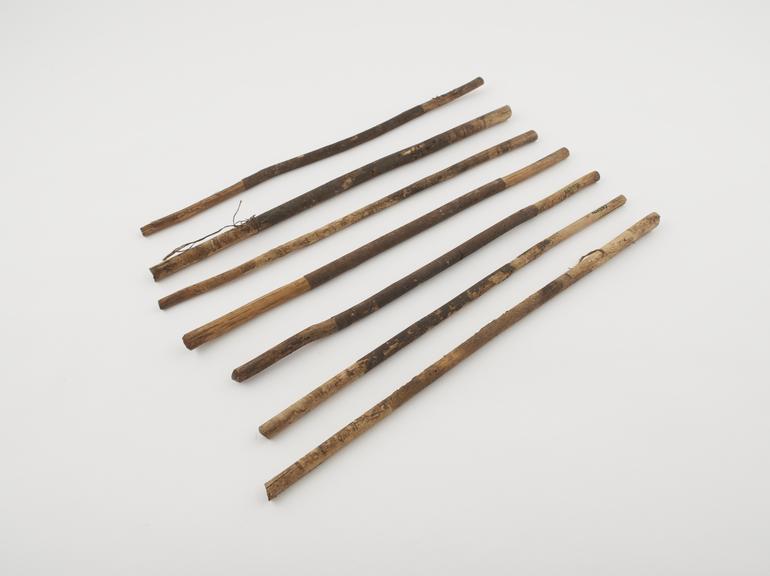
7 wooden sticks used in smallpox juju, Yoruba people, Nigeria, c. 1940
These sticks were likely used in a shrine controlled by priests associated with the worship of Sopona (Shapona), the Yoruba god of smallpox. According to the traditional religion of the Yoruba people of Nigeria, Sopona was given control of the earth with the power to reward its inhabitants by bestowing grains or punish by causing these same grains to emerge from the skin in the form of smallpox pustules.
Before the early 1900s, it was believed that the priests themselves could cause smallpox outbreaks through their close relationship with Sopona. Suspecting these individuals of deliberately spreading the disease, British colonial rulers banned the worship of Sopona in 1907. Devoted followers continued to honour the god, however, who has become known as Babalú-Ayé in several religions that developed from Yoruba beliefs in the Americas.
Smallpox was declared eradicated from western Nigeria in 1980 following extensive cultural and health education programmes.
Details
- Category:
- Ethnography and Folk Medicine
- Collection:
- Sir Henry Wellcome's Museum Collection
- Object Number:
- A631399
- Materials:
- wood
- type:
- sticks
- credit:
- Johnson, C.G.

